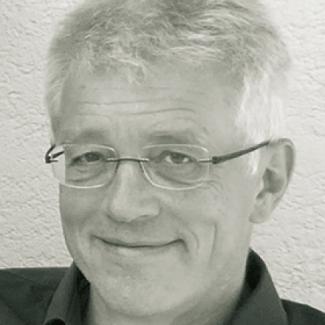Don’t do ISIS the favour of endorsing its propaganda
Gavin Long was a former US soldier who had served his country in Iraq. On 17 July, he shot and killed three policemen in Baton Rouge, and was then killed by the police himself. He also used the name Cosmo Ausar Setepenra, and said he did not believe non-violent protesting about black people being killed by police officers in the USA would deliver results. Moreover, he denied being affiliated to any organisation, though he once had belonged to controversial black leader Louis Farrakhan’s Nation of Islam. He had travelled to many countries, shown an interest in esoteric matters and done well in academic studies. Ultimately, he seems to have been rather isolated.
Mohamed Lahouaiej-Bouhlel was a Tunisian truck driver who was known to drink alcohol, eat pork and have a rather vivid sex life with changing partners. On 14 July, he drove a truck into a crowd and killed 84 people who were celebrating France’s national holiday in Nice. He was shot and killed. The terror militia ISIS later claimed that he had acted on its behalf, but it is quite clear that he did not take orders from it and that he did not have deep contacts with Islamist groups. He had been fascinated by violent Islamist websites, as analysis of his computer has revealed, but he was hardly in touch with them. He was facing divorce and had recently be sentenced to six months of prison on parole for perpetrating violence. His daily life had come apart.
On 19 July, a teenager from Afghanistan attacked train passengers in Würzburg with an axe and knives, wounding several of them seriously. He was killed by police officers he was about to attack next. His name has not been disclosed because he had not come of age. He had come to Germany as a refugee last year, and had obviously been in touch with ISIS lately, since the terrorist group was able to post a video of his after the bloodshed in Würzburg. The youngster was 17 years old, far from home, separated from his family and friends and upset about news of violence from Afghanistan.
All three perpetrators were mentally troubled, and neither got the kind of support they needed. More likely than not, the American’s Iraq experience contributed to his deep sense of resentment. It is hard to tell what kind of traumas the Afghan refugee had suffered. And Lahouaiej-Bouhlel was quite evidently up-rooted.
We have a choice. We can consider their deeds expressions of mentally disturbed individuals, or we can consider them acts of organised terrorism. We should take a hint from how ISIS wants us to see the event. The message of ISIS is one of cultures clashing, of Islam and the west being enemies without scope for compromise or reconciliation. It wants Muslims to hate the west, and western governments to discriminate against Muslims, oppress and denigrate them.
The west German terror outfit RAF, better known as the Baader-Meinhof gang, had hoped that its criminal actions would lead the authorities to crack down harshly on the left, thus revealing its oppressive character, and make the working class rise up in revolution. This bizarre theory did not work. But there can hardly be any doubt that ISIS attempts to trigger responses that further alienate the disenfranchised migrant community in France far more successfully. It is patently unwise to feed its narrative.
Right-wing and centre-left politicians in France are now lambasting the centre-left government for supposedly being weak on terrorism. They want the security forces to be better equipped, the secret services to get more surveillance rights and civil liberties, especially of the Muslim population, to be limited. That serves their political agenda. But none of the measures would have prevented what happened in Nice. The point is that this was not an ISIS attack like the ones in Paris in November and January last year. It was the desperate deed of a deeply disturbed person.
In Germany, right-wing violence has been far more deadly than Islamist activism in past years. As a matter of fact, Muslim fanatics so far have not killed in Germany, though some are certainly dangerous. The debate in Germany is not as heated up as it is in France, but right-wing populists are interested in people becoming afraid of foreigners.
In the USA, in the meantime, Donald Trump and his Republican supporters are tapping into racist sentiments and emphasizing that “blue lives matter”. Police uniforms are blue in the States, and the overwhelmingly non-violent “black lives matter” movement has been agitating against excessive police violence for two years. Again, instigating fear among white US citizens may serve Trump politically. At the same time, it only makes the deep divides his country is struggling to cope with even deeper.
The general public must see the deeds of depressed, confused and deranged individuals as what they are. They are not proof of the dangerous outreach of any coherent political force. They differ from the terror attacks on Paris or Brussels in that they were not orchestrated by ISIS. Security forces are pretty much impotent regarding lone wolves, and ISIS is eager to take advantage of them. But if a suicidal killer refers to ISIS in moments of despair, we’ll only do ISIS a favour if we read violent action as an expression of a religious faith rather than of the kind of mental disturbance that haunts other, a-political suicidal killers as the German Wings pilot who crashed an airplane into the Alps last year.
Terrible events require sober minded leaders. It does not look as if opposition leaders in France and the USA are living up to the task, and Germany’s populist AfD certainly is not either. Irresponsible politicians prefer fanning the flames – and that will only make it harder to put out the fire.


